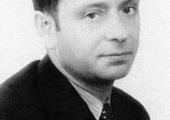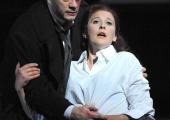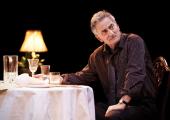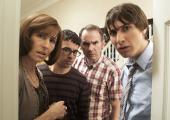The Man Who Crossed Hitler, BBC Two
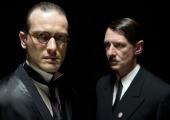
Unusual and effective take on the rise of Hitler in the 1930s
Out of the blue, in the middle of the midsummer slump, came this unusual and original one-off play (I say "play" because it would convert naturally to the stage). Finding a new angle from which to explore Hitler and the Nazis might seem impossible, since few subjects have had their bones picked clean more obsessively. A keg of schnapps, then, to writer Mark Hayhurst, who successfully pulled this one out of his hat.

